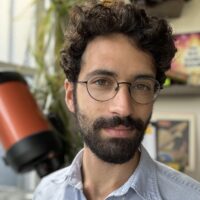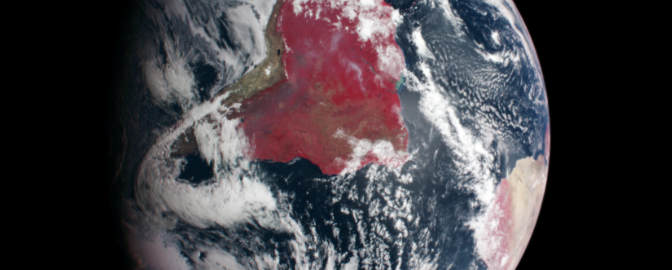
Asa Stahl
Science Editor, The Planetary Society
+1-626-793-5100
Dr. Asa Stahl is an astrophysicist, award-winning children's book author, and science communicator. During his Ph.D. at Rice University, Asa worked to discover newborn planets around other stars in order to help clarify how worlds — including our own — come to be.
Asa began writing about space to share his curiosity. Throughout his Ph.D., Asa published two pop-astronomy children's books, was named a AAAS Mass Media Fellow, and contributed to outlets including Science News, Sky & Telescope, Google Arts & Culture, and the Houston Chronicle. His first children's book, "The Big Bang Book", is a Sakura Medal Finalist, NSTA-CBC Outstanding Science Trade Book, ILA Nonfiction Honor book, and an Ezra Jack Keats Award nominee. His second book, "Picnic Planet: A Lunchtime Guide to Your Galaxy's Exoplanets", came out in 2023.
As The Planetary Society's Science Editor, Asa writes and produces accessible content that helps others engage with astronomy, space exploration, and all the ways The Planetary Society contributes to both. He is excited to further the mission of his role model, Carl Sagan, and aims to reshape society's relationship with space to be broader and more inclusive.
To learn more, check out www.asastahl.com.
Latest Articles
As thousands leave the space agency, two ex-NASA workers give an inside account of how their office was abruptly shut down.
In exclusive interviews, ex-NASA scientists speak out on the impact of the agency's mass departures.
A strange rock on Mars is different from anything we’ve seen before in the search for life.
Latest Planetary Radio Appearances
A reported 50% cut to NASA’s science budget threatens to shut down missions, halt new discoveries, and devastate scientific space exploration. This week, we break down the fight ahead with The Planetary Society’s space policy team and explore how grassroots advocacy can help protect the future of space science.
The Planetary Society team reviews the best space moments of 2024, from the China National Space Administration's return of samples from the far side of the Moon to the triumphant launch of NASA's Europa Clipper mission.
Get up to speed on the latest in commercial space news and look forward to the European Space Agency’s Ramses mission to Apophis with members of The Planetary Society team.


 Explore Worlds
Explore Worlds Find Life
Find Life Defend Earth
Defend Earth







